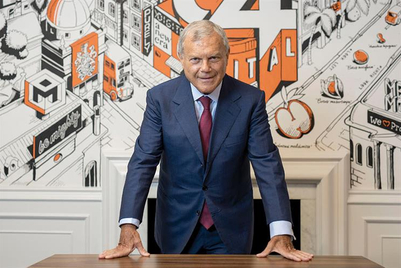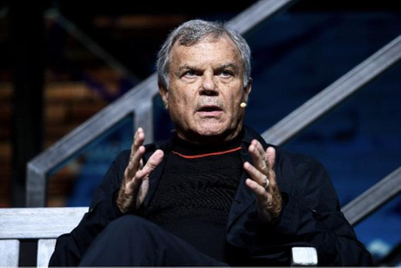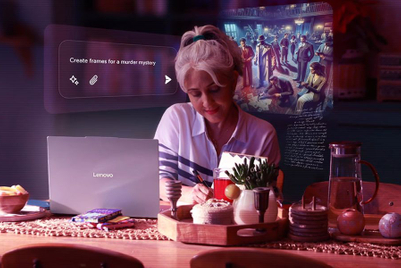If you ask what advertising professionals working from home miss the most, more often than not, it’s pretty simple: the banter and camaraderie that only comes with being physically present in the office.
With several employees completing both vaccine doses, is the industry looking to cautiously welcome employees back to the office? There will always be risks involved in bringing staff back to work and adland seems to be establishing safety protocols and reviewing the pros and cons.
Which agencies are planning on resuming working from the office? What safety precautions are being put in place? Will all employees be in on all days? Campaign India finds out.
Guess who’s back?
Most agencies are planning to have their staff back in the office based on a careful assessment of the on-ground situation.
Speaking of why the Publicis Groupe is sure of having their employees back to the office, Anupriya Acharya, South Asia CEO, Publicis Groupe, says, “Some of the best and most memorable campaigns have been born from the serendipity of spontaneous conversation. This business is about people, teams building integrated solutions and the office is a vital and central aspect of it all.”
Agencies from the IPG Mediabrands plan to come back in a hybrid format, possibly twice a week. Their staff could be returning to the office as early as October 2021, post the second round of vaccinations.
On the other hand, Anand Bhadkamkar, ex-CEO, dentsu India, says that the network has no set timeframe for calling its employees back to the offices. He explains, “Once the lockdown started opening up, we kept offices open and sanitised. Employees who need to come here and work can so do. However, employees who haven’t taken even a single dose of the vaccine aren’t allowed to enter the office.”
Although dentsu has left the choice of coming back to the office completely in the hands of its employees, Bhadkamkar claims that employees are required to come whenever clients request an in-person interaction.
DDB Mudra Group, on the other hand, is still in the process of formalising a safe, measured and structured return-to-office plan. An internal announcement around this is expected in the next couple of weeks.
Come September, The Havas Group India plans to gradually bring in employees who’ve had both vaccine doses. Rana Barua, group CEO, says, “Initially, we will start with 1/3 of the staff, followed by 50% and so on depending on the government norms for private companies,” he adds.
Having a definite date in mind, Madison World is set to open its premises from 20 September 2021 only for fully-vaccinated employees.
WPP India, on the other hand, does not intend to jump the gun and is looking at a voluntary, phased approach, as it reopens its offices.
Proving true to its ‘Work from Anywhere’ policy, Blink Digital has no plans of calling its employees back to their office anytime soon. The agency recently announced that it had partnered with co-working space company WeWork. This enables employees to work at any WeWork premises across India, free of cost.
Coming to S4 Capital, Poran Malani, director, believes that several factors need to be considered before the agency opens its offices. He says, “If a new wave emerges we will recalibrate. Many people left the main cities to be with their families in their hometowns and we need to make sure that it is safe for them to return. Even if we wanted to get people back it would still take months to let people re-organise.”
Plans for the uninoculated
Every agency has undoubtedly urged its employees to get fully inoculated before they come back. However, vaccine hesitancy is still a consideration, since companies cannot force employees to be inoculated.
In the interest of all staff’s safety, the Publicis Groupe and IPG Mediabrands have made it mandatory for the non-vaccinated staff to take an RTPCR test 72 hours before entering premises. Nevertheless, Savita Mathai, group chief talent officer, FCB Group India and IPG Mediabrands claims that it is but a small population of employees who have opted not to take the vaccine.
Barua too resonates with IPG and Publicis. He says, “Those who are not vaccinated but wish to come to the office will need to carry a negative Covid-19 test report every time they come to the office.” However, he agrees that it isn’t the most effective or convenient method to follow in the long term.
Vaccine hesitancy isn’t the only reason some employees haven’t gotten the jab yet, though. Agencies have come up with certain alternatives for these cases.
Bhamini Painter, HR director at Madison World, states that employees who have been unable to take the vaccine due to prior infection or health-related reasons will be exempted from coming to the office; they will be allowed to work from home. Pregnant people, too, will be given the same option.
Malani claims that employees hesitant to take the jab by choice will be barred from entering office premises in the interest of maintaining safety for the rest.
The Publicis Groupe, too, has asked people falling under exceptional categories to work from home.
In what must help ease any additional mental pressure for people brought on by already hard times, Niken Wresniwiro, SVP, global communications, WPP, maintains how the agency, at this time, does not require its employees to confirm their vaccine status or be vaccinated to work from its offices.
Infrastructure changes for better social distancing
dentsu had already started working around its office structure and floor seating plan, according to Bhadkamkar. He states, “Policy-wise, we will never have 100% occupancy, but only 40-60% at any given time. This will help us maintain physical distancing. We also have some global norms from dentsu that we have been following and are looking at free seating across all our agencies.”
Mathai claims that IPG is still adopting a wait-and-watch approach; the network will rotate employee days, much like it did when it reopened its offices in December. “We haven’t made any real-estate changes since it’s too premature for that. When we get back, we will gauge the situation and take a call.”
Madison has used the lockdown to renovate certain areas of its office. “We plan to implement staggered work hours to maintain social distancing. Once we start working from the office, we will take the next steps required to ensure social distancing is maintained. In conference and meeting rooms, only every alternate chair will be used,” added Painter.
Acharya, on the other hand, states that Publicis will start with a 50% capacity for the initial few months and has also planned a floor mapping exercise. She talks about how the network is employing the Workspace tool to manage the office’s capacity and logistics. “This tool allows our people to reserve their seats in advance and check-in using a mobile or tablet while on-premises. This real-time data helps our talent, admin and operational staff keep track of the number of people in the office,” she added.
Havas, too, is leveraging technology. Barua suggests the agency is using the WorkInSync app for employees. “The app generates a digi-pass without which entry into the office is not permitted. Workstations and meeting rooms are marked according to social distancing norms as well.”
Malani says S4 Capital has also rebuilt its office, with workstations that are now much further apart than before.
WPP, too, will ensure social distancing of six feet, which will include limiting the use of its meeting rooms which cannot accommodate this ask.
Every employee needs to inform the admin team at least a day in advance, should they want to access the HQ at Blink Digital, which follows a 30% occupancy guideline while approving/access.
However, it is safe to say that we live in times where every undesirable news would be another nail in the coffin.
As adland packs its bags to go to work, we hope that it is does not face the fickleness of the virus.
.png&h=570&w=855&q=100&v=20250320&c=1)
.png&h=570&w=855&q=100&v=20250320&c=1)


.jpg&h=334&w=500&q=100&v=20250320&c=1)
.jpg&h=334&w=500&q=100&v=20250320&c=1)


.jpg&h=334&w=500&q=100&v=20250320&c=1)
.jpg&h=334&w=500&q=100&v=20250320&c=1)



.jpg&h=334&w=500&q=100&v=20250320&c=1)




.jpg&h=268&w=401&q=100&v=20250320&c=1)

.jpg&h=268&w=401&q=100&v=20250320&c=1)

